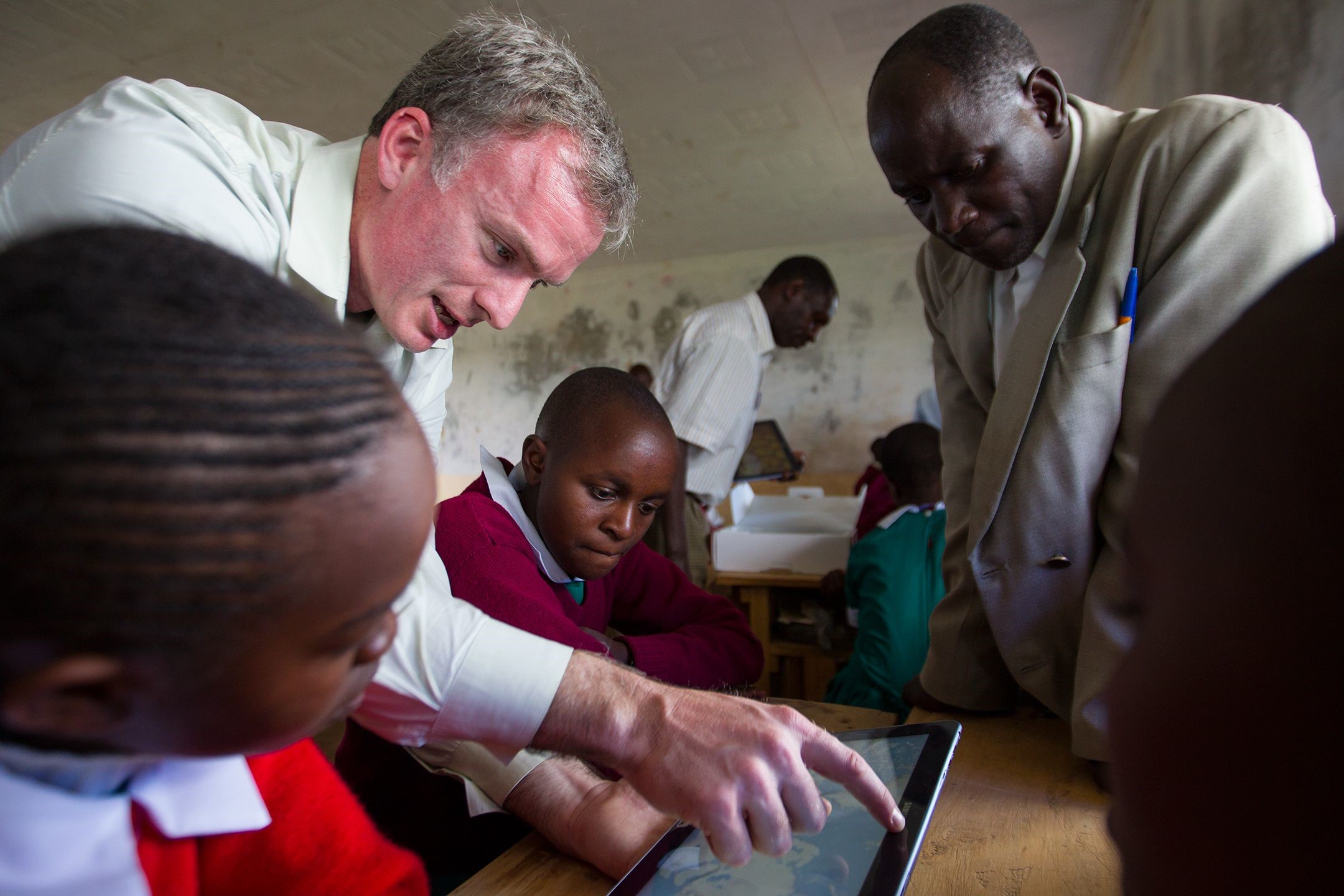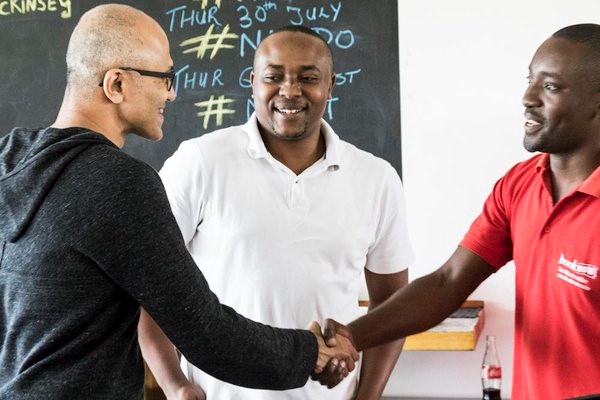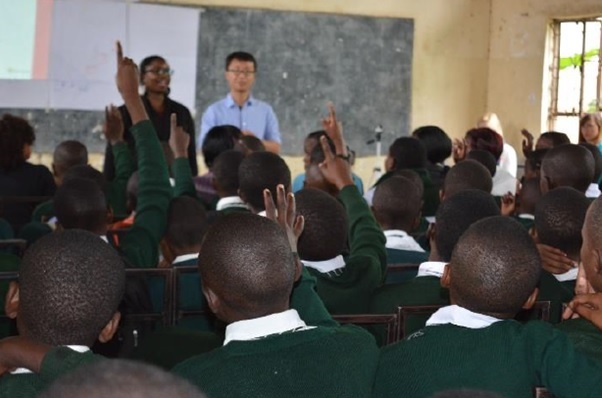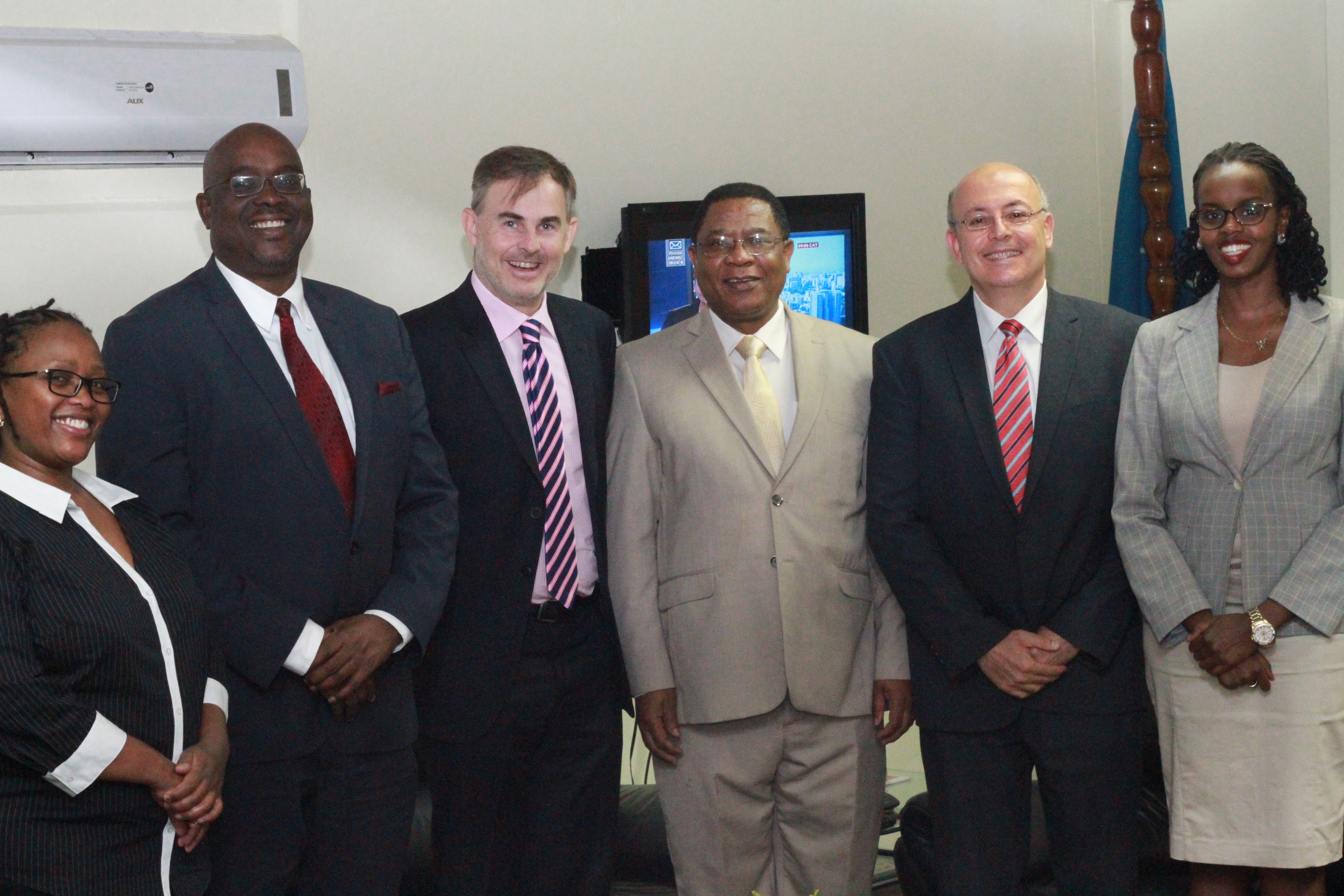Four years ago, if Anthony Kuria from the Red Cross in Nanyuki, Kenya, wanted to send an email, he had to walk hours to the nearest WiFi hotspot. Now, he has fast and affordable internet in his office.
Four years ago, young entrepreneur Kaakpema Yelpaala started working on a solution to improve the quality of healthcare in emerging markets. Today, that solution is being used by over 1,000 healthcare practitioners in 100 clinics, reaching two million patients.
These success stories – and many more – are all a result of the work Microsoft 4Afrika and our partners have done since 2013. By investing in affordable access, locally relevant solutions and skills development, we have been able to use technology to unlock the potential of Africans.
And we will continue to do so.
As we have seen the transformation taking place on the continent, it has given us hope that there is still a lot more work to be done.
Below is a re-cap of our journey so far.
Affordable Access
4Afrika invested in its first connectivity pilot in Kenya in 2013. Working together with Mawingu Networks, we used TV white spaces technology to bring affordable broadband access to last-mile communities in Nanyuki.
Four years later, what started as 15 WiFi hotspots has since grown into over 500 hotspots, serving roughly 100 customers each. 26 schools in the area now have internet access, with Gakawa Secondary School reporting an improved score in every subject on the Kenya National Exam. Last year, the Overseas Private Investment Corporation recognised the promise of Mawingu, and committed a $4.1 million financing loan to help the project commercially expand. With this funding, the project will be able to reach an additional three million people in the short-term.
Today, 4Afrika has 15 TV white spaces projects running in 6 countries across Africa. In Botswana, we are using the technology to deliver telemedicine services to over 3,000 patients. In Ghana, 6,000 students at Koforidua University are able to do work and research online. And through our global Affordable Access Initiative, we are helping five innovative companies in Africa to scale, who are developing technologies to bring billions of people online.
In addition to connectivity, we’ve also worked closely with SMEs to improve their access to finance, markets, technology, information, skills and services. We have brought over 500,000 SMEs online and helped 17,000 grow their businesses on Biz4Afrika. We have also partnered with a wide range of SME organisations and service providers, including Tigo Business, Liquid Telecom and the Standard Bank of Nigeria, to improve access to cloud services, software, local content and financial expertise for SMEs.
Innovation
Since 2013, Microsoft has helped 82 start-ups to develop and scale their businesses, through both funding, access to technology and technical support. With this support base, these start-ups have since generated $5.1 million in reciprocal investments.
But the impact these start-ups have gone on to have with their own customers is what is most significant to us.
M-KOPA Solar now runs the largest Azure implementation in Africa. On a continent where only one out of three Africans has access to electricity, the cloud is enabling M-KOPA to provide affordable pay-as-you-go solar energy to over 400,000 homes. With Azure, they are managing over 10 million mobile transactions every year. They are also analysing important business data – from weather patterns to device life and the credit behaviours of a population who have never accessed the financial system. Their goal is to connect one million homes by the end of 2017.
Tulane also now provides eHealth services to over 3,000 healthcare clinics across 10 regions in Ethiopia. Using Power BI dashboards, stakeholders are monitoring key health indicators and deriving insights from over 150 million digital health records. Machine Learning has been introduced to run predictive analytics and disease surveillance, and over 2,500 health information technologists have been trained, with another 6,000 still to come to drive the technology forward.
In the public sector space, we have also incubated and supported 11 innovative, cloud-based solutions, which help governments to improve service delivery. These include the likes of BioSIM, which collects school data in local counties to help governments benchmark quality and take informed actions around education.
4Afrika will continue to invest in these solutions and business models relevant to Africa, especially in the agriculture, healthcare, education and energy sectors. We have built partnerships with 12 accelerators in Africa, to help us identify the most promising start-ups and give them the tools and resources they need to succeed.
Skills
As we have worked to improve connectivity and innovation, it’s important that we also develop the skills to meaningfully consume and create more of this locally-relevant technology. In the last four years, Microsoft 4Afrika has trained 775,000 Africans through the Microsoft Virtual Academy, 1,500 partners and professionals through virtual classrooms, 400 graduates in 17 countries through Interns4Afrika, and 300 developers through the Microsoft AppFactory.
Through MySkills4Afrika, over 400 Microsoft employees have also travelled to Africa, supporting 300 organisations with their skills and expertise. Through this work, we have empowered governments, NGOs, enterprises, SMEs and start-ups to modernise and better integrate technology in their operations. As a result, organisations such as MtOM have grown and scaled up from eight to 33 customers in just four months.
Success in partnerships
A key element in driving this work and spurring economic development has been our partnerships with government entities.
We have been working closely with the Common Market for East and Southern Africa (COMESA) to develop affordable access, innovation, skills and trusted cloud infrastructure in their 19 member states. This partnership has led to increased awareness of the impact of ICT in Africa, with the Heads of State & Government raising ICT and innovation as a priority. In addition, we are working together to roll-out a new online Intellectual Property registration system, which has already increased registrations with the Kenya Copyright Board by 100%.
4Afrika also recently signed an agreement with the Minister of ICT and the Minister of Investment in Tunisia to launch Tunisia Open4Business. This is a new eServices platform that extends a rich portfolio of Cloud-based services, designed to support the government of Tunisia in positively influencing the investment environment and communicating investment opportunities in the country.
Over the last four years, more and more organisations – across the public and private sectors – have recognised the need for technology to play a bigger role in the transformation of Africa. Microsoft 4Afrika is here to stay – and continue answering that call.








